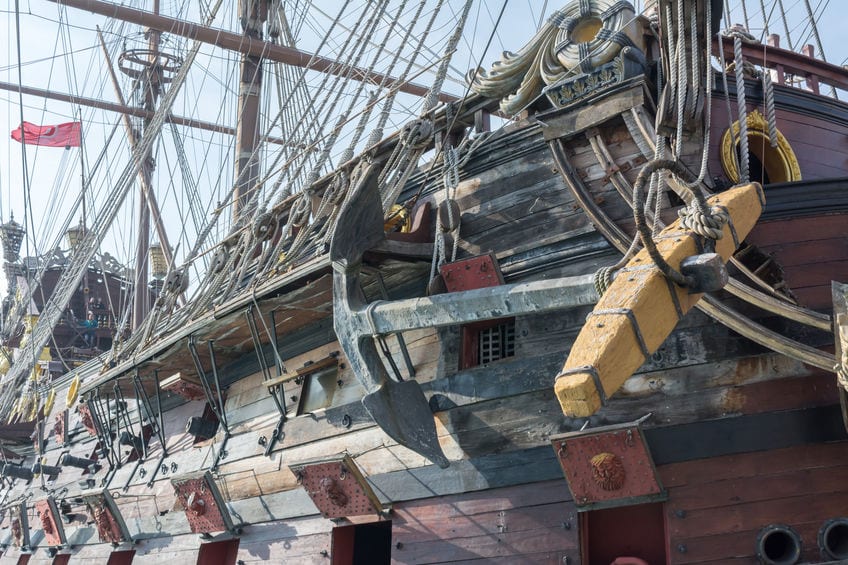Martime Salvage of Treasure and Shipwrecks

What Treasures Lie Beneath Maritime Salvage & Shipwrecks

In the world of maritime salvage, the most common “res” (Latin for “thing”) recovered or saved from total loss is a vessel. (Sailboat, powerboat, barge, etc.) However, this does not always have to be the case in order for a claim to be classified as maritime salvage—and to have maritime law govern the outcome. It is important to recall that maritime law is a mix of hundreds of years of tradition that formed a “common law”, and it is supplemented by U.S. federal statutes and federal judicial decisions.
Only recently comes news that an archeological group located the Spanish galleon, San Jose, somewhere—the exact location is still undisclosed–off the coast of Colombia. It is estimated that the gold, silver, and artifacts on this early-1700’s vessel could be worth more than $17 billion dollars. Instant riches for company and crew who found the shipwreck right? Not so fast.
The U.S. Congress enacted the Foreign Sovereign Immunities Act of 1976, 28 U.S. C. §§ 1602-1611 (2006). Amongst other protections provided to foreign countries, this Act was essentially interpreted to mean that no foreign government’s property could be taken—or in maritime law terms “arrested”. This law results in the inability of treasure salvors to be able to bring the shipwrecks and their cargo under the jurisdiction of the federal courts which the salvors would need in order to potentially gain ownership of any assets the treasure salvor may have located.

A prime example of this situation is the case of Odyssey Marine and another shipwrecked Spanish galleon known as the Mercedes. Odyssey Marine Exploration, Inc. v. Unidentified Shipwrecked Vessel, 675 F. Supp. 2d 1126 (M. D. Fla. 2009), and the affirming opinion of the court of appeals (Doc. 286; Odyssey Marine Exploration, Inc. v. Unidentified Shipwrecked Vessel, 657 F. 3d 1159 (11th Cir. 2011), cert. denied, 132 S. Ct. 2379 (2012)) is the story of a treasure salvor company which located and recovered a significant shipwreck but which eventually lost all of it. The value of the recovered treasure from the Mercedes was estimated to be in the range of $500,000,000 at one point.
Odyssey itself spent more than $2. 6 million retrieving the treasure from the Mercedes, according to a Business Week magazine report. In the end, the federal trial court and then the appeals court decided under the Foreign Sovereign Immunities Act that Odyssey had no legal ability to arrest the vessel, nor any of the treasure at the shipwreck. Therefore, the federal courts had no jurisdiction to allow Odyssey to hold the treasure which Odyssey had recovered. In the end, Odyssey was forced to send all of the treasure it had salvaged and handed it over to the government of Spain. Odyssey was never paid anything for its costs of searching for, recovering, or transporting the treasure which it then had to ship to Spain. Zero.
In summary, while this latest news of the find of the Spanish galleon, the San Jose and its potential, $17 billion cargo is all the news, it may be Spain who ends up with the treasure in the long run. For treasure salvors, it may be that you can find it, recover it, but it does not guarantee that you will be able to keep it. And certainly, Spain will be pointing back to the precedent set in the Odyssey case which officially ended in Spain’s favor in 2012.
